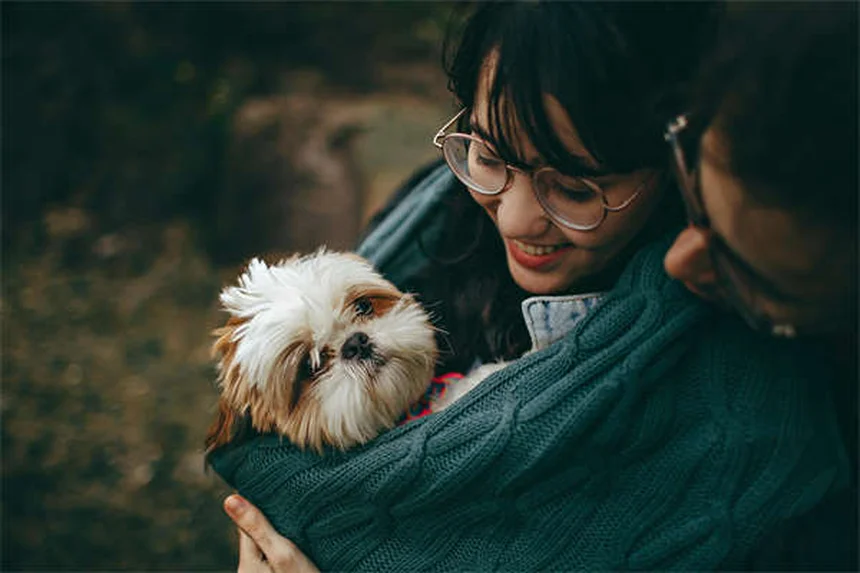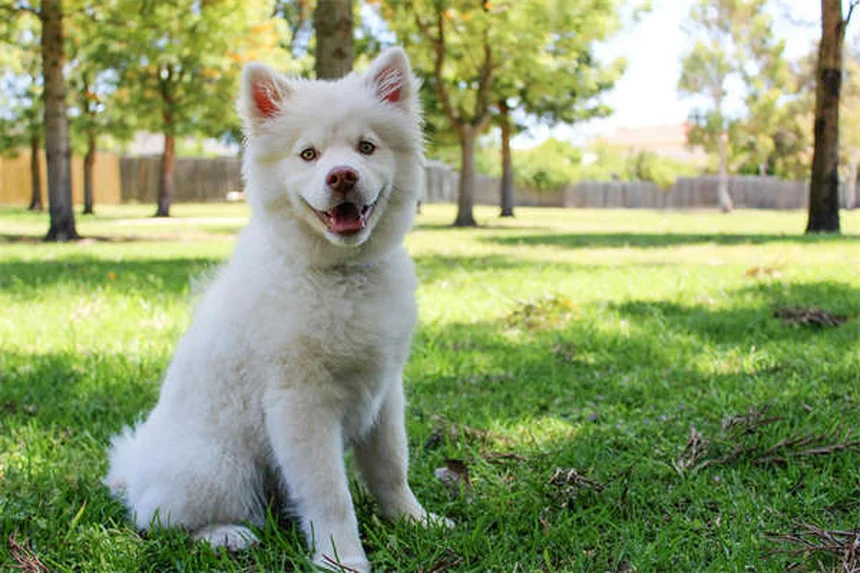Is your dog constipated? The answer is: Yes, if they're straining to poop or haven't gone in over 48 hours! As a dog owner myself, I know how worrying it can be when your furry friend can't do their business. Constipation in dogs is more common than you think, and luckily, there are several safe home remedies you can try before rushing to the vet.In this guide, we'll walk through exactly what to look for and how to help your pup get relief fast. From simple hydration tricks to vet-approved fiber solutions, we've got you covered. Just remember - if your dog shows severe symptoms like vomiting or extreme discomfort, skip the home treatments and call your vet immediately!
E.g. :Vetmedin for Dogs: What Every Pet Owner Needs to Know
- 1、Is Your Dog Struggling to Poop? Here's How to Help
- 2、5 Paw-some Home Remedies to Get Things Moving
- 3、What NOT to Do for Constipation
- 4、Your Burning Questions Answered
- 5、The Hidden Dangers of Chronic Constipation
- 6、Prevention Is Better Than Cure
- 7、Understanding Your Dog's Unique Needs
- 8、The Vet's Secret Weapons
- 9、Final Thoughts on Canine Comfort
- 10、FAQs
Is Your Dog Struggling to Poop? Here's How to Help
Hey there fellow dog lover! Let's talk about something we don't often discuss at dog parks - your pup's poop schedule. Just like us humans, dogs can experience constipation too. And trust me, when your furry friend can't go, they feel just as miserable as we do!
Spotting the Signs of Dog Constipation
Ever seen your dog doing the "poop dance" but nothing comes out? That's one of the classic signs. Here's what to watch for:
- Straining like they're trying to lift weights
- Taking forever to find the perfect spot
- Producing little rabbit-like pellets instead of normal logs
But here's the thing - did you know constipation can sometimes be serious? If your dog hasn't pooped in more than two days, is vomiting, or seems lethargic, drop everything and call your vet immediately. Their little bodies can't handle being backed up for too long!
5 Paw-some Home Remedies to Get Things Moving
1. The Rear End Inspection
Let's start with the obvious - check your dog's behind. I know, not the most glamorous job, but someone's gotta do it! Long-haired dogs especially can get "poop dreadlocks" that block the exit.
Pro tip: Use clippers, not scissors! One wrong move and you might have an emergency vet visit on your hands. If things look complicated down there, call your groomer or vet for backup.
 Photos provided by pixabay
Photos provided by pixabay
2. Water, Water Everywhere!
Dehydration is like concrete for your dog's poop. The body sucks all the moisture out, leaving behind little bricks. Here's how to keep your pup hydrated:
| Hydration Method | How It Helps |
|---|---|
| Water fountains | Dogs love moving water - it's like a fancy cocktail bar for them! |
| Elevated bowls | Great for older dogs who don't want to bend down |
| Wet food | Packs extra moisture right into their meals |
Ever notice how your dog drinks more after exercise? That's nature's way of saying "keep that water bowl full!"
3. Walk It Out
Here's a fun fact - exercise gets more than just your dog's tail wagging! Movement stimulates their digestive system too. Think of it like shaking a ketchup bottle - sometimes you just need to get things moving.
Try adding an extra 10-minute walk to your routine. The smells of other dogs' business might just inspire your pup to leave their own "calling card."
4. Fiber to the Rescue
Now, fiber is tricky. It can be a hero or a villain depending on the situation. Always check with your vet first, but here are some fiber options:
- Pumpkin puree (not pie filling!) - nature's broom
- Psyllium husk - the gentle giant of fiber supplements
Remember when I said fiber can be tricky? Here's why - too much can actually make constipation worse in some cases. That's why your vet's advice is golden.
 Photos provided by pixabay
Photos provided by pixabay
2. Water, Water Everywhere!
Your dog's gut is like a tiny ecosystem, and sometimes the good bacteria need reinforcements. Probiotics are like sending in the special forces to restore order.
Popular options include Purina Fortiflora and Proviable. Think of them as little soldiers marching in to save the day!
What NOT to Do for Constipation
The Laxative Question
Here's something that might surprise you - many human laxatives can be dangerous for dogs. Never give your dog any medication without vet approval. Some safe options your vet might recommend include:
- Petroleum-based lubricants
- Miralax (in proper doses)
But seriously, this isn't a DIY situation. Your vet knows best when it comes to medications.
The Enema Emergency
Let me be crystal clear here - do not attempt home enemas unless specifically instructed by your vet. The risks far outweigh any potential benefits. This is one area where professional help is absolutely necessary.
Your Burning Questions Answered
 Photos provided by pixabay
Photos provided by pixabay
2. Water, Water Everywhere!
Here's a good rule of thumb - if your dog hasn't pooped in 48 hours, it's time to call the vet. Think about it - that's two whole days of waste just sitting there. Not comfortable for anyone!
What's the Best Food for a Constipated Dog?
Wet food is often the MVP here because of its high moisture content. You can also try adding water to dry food - it's like making cereal for your pup!
Did you know that sometimes constipation can be caused by eating things they shouldn't? That's right - your dog's love of socks might literally be a pain in the butt!
When to Hit the Panic Button
If your dog shows any of these red flags, skip the home remedies and head straight to the vet:
- Straining with no results
- Vomiting
- Lethargy
- Blood in stool
Remember, you know your dog best. When in doubt, check it out with your vet!
The Hidden Dangers of Chronic Constipation
It's More Than Just Discomfort
You might think constipation is just a temporary inconvenience, but let me tell you - when it becomes chronic, it can lead to some serious health issues. Megacolon, for instance, is a condition where the colon becomes stretched and weakened from holding too much waste. Imagine a balloon that's been blown up too many times - it just doesn't bounce back the same way!
Here's something that might surprise you - dogs with chronic constipation often develop behavioral issues too. Wouldn't you be grumpy if you always felt bloated? I've seen cases where dogs become irritable, lose their appetite, or even start avoiding their favorite activities because they just don't feel right.
The Emotional Toll on Your Pup
We often forget that our dogs experience emotions just like we do. When they're constipated, they might feel anxious or embarrassed - yes, dogs can feel embarrassed! Have you ever noticed your dog hiding after having an accident? That's the same kind of emotion at play here.
Think about this - when your dog associates their potty area with pain or discomfort, they might start holding it in even longer, creating a vicious cycle. That's why addressing constipation early is so important for their mental wellbeing too!
Prevention Is Better Than Cure
Creating a Poop-Friendly Routine
Consistency is key when it comes to your dog's digestive health. Dogs thrive on routine, and their bowels are no exception! Try to:
- Feed them at the same times each day
- Take them out for potty breaks on a schedule
- Keep their water bowl in the same spot
You know what's funny? Dogs are creatures of habit when it comes to bathroom breaks too. My neighbor's golden retriever will only poop in one specific corner of their yard - he's got his own "office" setup back there!
The Power of Play for Digestion
Here's a fun fact you probably didn't know - certain types of play can actually help prevent constipation. Games that involve twisting and turning, like tug-of-war or fetch with direction changes, give your dog's digestive system a gentle massage from the inside!
I recommend incorporating at least 15 minutes of active play into your daily routine. Not only will it keep your dog fit, but it'll also keep things moving smoothly in the digestive department. It's like hitting two birds with one stone - except we love birds, so let's say it's like getting two treats with one hand!
Understanding Your Dog's Unique Needs
Breed-Specific Considerations
Did you know that some breeds are more prone to constipation than others? Here's a quick comparison:
| Breed Type | Constipation Risk | Why? |
|---|---|---|
| Small breeds (Chihuahuas, Yorkies) | High | Smaller digestive tracts |
| Senior dogs | High | Slower metabolism |
| Giant breeds (Great Danes, Mastiffs) | Medium | Different digestive challenges |
This doesn't mean your tiny pup is doomed to constipation! It just means you might need to pay extra attention to their fiber intake and hydration levels.
Age Matters Too
Puppies and senior dogs have very different digestive needs. While puppies might get constipated from eating something they shouldn't (like your favorite socks), senior dogs often struggle due to decreased muscle tone in their digestive tract.
Here's a question you might not have considered - could your dog's food be the culprit? Many people don't realize that as dogs age, their nutritional needs change dramatically. What worked for them at age 2 might not cut it at age 10!
The Vet's Secret Weapons
When Home Remedies Aren't Enough
Sometimes, despite our best efforts, our dogs need professional help. Vets have some pretty cool tools in their arsenal for stubborn cases:
- Specialized prescription diets
- Digital imaging to check for blockages
- Manual removal (yes, it's exactly what it sounds like)
I'll never forget the time my vet showed me an x-ray of a dog who had eaten an entire corn cob - you could see it clear as day, stuck right in the intestines! That poor pup needed surgery, but most cases aren't that extreme.
The Magic of Veterinary Massage
Here's something you probably haven't heard of - some vets are trained in canine abdominal massage techniques. It's like a spa day for your dog's digestive system! These gentle, specific movements can help stimulate bowel movements and relieve discomfort.
You can even learn some basic techniques to use at home. Just imagine - while your friends are giving their dogs belly rubs, you'll be giving therapeutic digestive massages! Talk about next-level pet parenting.
Final Thoughts on Canine Comfort
Listening to Your Dog's Signals
At the end of the day, you know your dog better than anyone. Those subtle changes in behavior - the extra circling before lying down, the decreased interest in food - these are all clues that something might be off.
Remember that time your dog kept nudging your hand until you finally realized they wanted water? That's the kind of intuition we need to apply to their bathroom habits too. They're counting on us to notice when things aren't right!
Building a Support System
Don't be afraid to reach out for help when you need it. Your vet, groomer, and even fellow dog owners can be invaluable resources. I've learned some of my best tips from random conversations at the dog park!
Here's a little secret - most vets would rather you call with a "silly" question than wait until it's an emergency. So when in doubt, pick up the phone. Your dog's comfort is worth that extra bit of effort!
E.g. :Dog Constipation Causes and Treatment
FAQs
Q: How can I tell if my dog is constipated?
A: You'll know your dog is constipated when you notice them straining to poop without producing much, going less frequently than usual, or passing small, hard stools. Other signs include discomfort while trying to go, loss of appetite, or even vomiting in severe cases. As a general rule, if your dog hasn't pooped in more than two days, it's time to take action. I always tell my readers to trust their gut - you know your dog's normal bathroom habits better than anyone!
Q: What's the fastest way to relieve my dog's constipation at home?
A: The quickest home remedy is usually increasing your dog's water intake. Try adding water to their dry food or switching to wet food temporarily. You can also try a teaspoon of plain canned pumpkin (not pie filling!) for small dogs or a tablespoon for larger breeds. Another fast solution is taking your dog for extra walks - exercise helps stimulate bowel movements. Just remember, these are only for mild cases. If your dog seems in pain or it's been more than two days, call your vet right away.
Q: Can I give my dog human laxatives for constipation?
A: No way! Many human laxatives can be dangerous for dogs. Some medications like Miralax might be safe in specific doses, but only under veterinary guidance. I've seen too many cases where well-meaning owners accidentally made their dogs sick with human medications. Your vet might recommend special dog-safe options like Laxatone, but never try this without professional advice. When in doubt, it's always better to be safe than sorry with your pup's health!
Q: How long is too long for a dog to go without pooping?
A: Here's the deal - 48 hours is the absolute maximum you should wait before calling the vet. Think about it: that's two full days of waste building up in your dog's system! Smaller dogs especially can't handle being backed up for long. If it's been more than a day and your home remedies aren't working, don't wait - make that vet appointment. I always remind my readers that constipation can sometimes signal serious health issues, so it's better to get professional help sooner rather than later.
Q: Are there any foods that help prevent dog constipation?
A: Absolutely! Foods high in moisture and fiber are your best bets. Canned pumpkin (the plain kind) is my top recommendation - it's like nature's broom for your dog's digestive system. Other great options include vet-approved high-fiber dog foods or adding a bit of psyllium husk to their meals. Wet food helps too because of its higher water content. Just remember to introduce any new foods gradually and always check with your vet first, especially if your dog has other health conditions.







